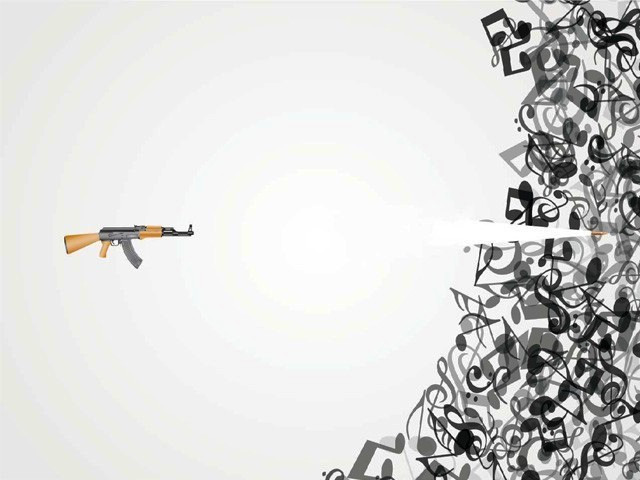While the dictionary defines it as the “use of violence and intimidation in pursuit of political aims there is no unanimous legal definition of ‘terrorism’
If it was up to me, I would define it as a continual dose of fear that creates uncertainty, distrust and melancholy. That melancholy triggers depression, which in turn gives birth to numerous psychological ailments.
Recently, a noted psychiatrist from Peshawar, Dr Khalid Mufti, released a survey report, conducted under his supervision by an NGO called Horizon. According to the survey, 80 per cent of South and North Waziristan residents are suffering from mental illness while 60 per cent of people of Peshawar are on the verge of becoming psychological patients. The survey also indicated that seven to nine per cent of the children have developed various phobias due to exposure to terrorism related violence on television.
Insecurity in the marketplace
The report corroborates a general feeling prevalent among the people of Khyber Pukhtunkhuwa - the people are scared and cautious when they leave their homes for work or running errands. Incidents of terrorism and bomb blasts are routinely discussed among friends, acquaintances, sellers and customers. When a person tries to bargain with a seller, he promptly complains about making minimal profits due to incidents of terrorism which generally keeps the consumer away from market.
The drop in market visits however, is not constant - the business community bears the brunt when a wave of random bombings grip the city or a province as it did in the last quarter of 2009 and the first quarter of 2010. However, this pattern points toward a prevailing uncertainty, which is linked with terrorism.
Similarly, a rise in kidnapping for ransom has caused the situation to deteriorate even more. Usually, affluent people are considered to be prime targets as the kidnappers can demand hefty sums in return. But, in the past few years, kidnapping has turned into an organised crime in Khyber-Pukhtunkhuwa, even low income persons including taxi drivers are not spared.
The role of police in recovering the victim is almost nonexistent and this has increased the collective sense of insecurity.
Lack of recreation, lack of security
Other factors that result in frustration, anguish and psychological diseases are related to the standard of living. Some of those mentioned in the survey are, price hike in everyday commodities, joblessness, energy crisis and untidiness etcetera.
Recreational activities contribute to one’s overall development and health but unfortunately there is a serious lack of such activities in Khyber-Pukhtunkhuwa. Before the government of the Mutahida Majlish-i-Amal (MMA) in K-P, Nishter Hall in Peshawar used to be the hub of cultural/entertainment activities and art exhibitions but the MMA government, instead of regulating it, clamped down on it in the name of morality.
Only recently, entertainment activities have resumed in Nishter Hall but that too, on a limited basis. The members of entertainment community also suffered and during the course of the past years, several Pashto drama artists and singers quit their profession after receiving threats from the Taliban militants.
The dissemination of threatening letters to shopkeepers selling music/video CDs, to those running cyber cafes, to doctors for wearing western style trousers and shirts to the female principals or staff of educational institutions are common occurrences. Moreover, destroying cyber cafes, CD shops and school buildings and random firing of rockets by militants in Peshawar from unknown locations is a routine.
Fear and psychological issues are bound to flourish in an environment where the arts and culture are suppressed. Innocent civilians are killed in bomb blasts or become victims of an organised crime and are coerced to shun their centuries-old cultural traditions.
The depression resulted by the dominoes effect of terrorism can be contained by taking some of the measures that Dr Khalid Mufti has suggested. Also, there is a need to restore the confidence of the people and that is possible when the people know they or their dear ones will not be struck by a bomb, or be lifted by a gang of kidnappers, while performing their everyday duties outside the four walls of their homes.
The domino effect of terrorism
Fear and psychological disorders are bound to flourish in an environment where the arts and culture are suppressed.



COMMENTS
Comments are moderated and generally will be posted if they are on-topic and not abusive.
For more information, please see our Comments FAQ